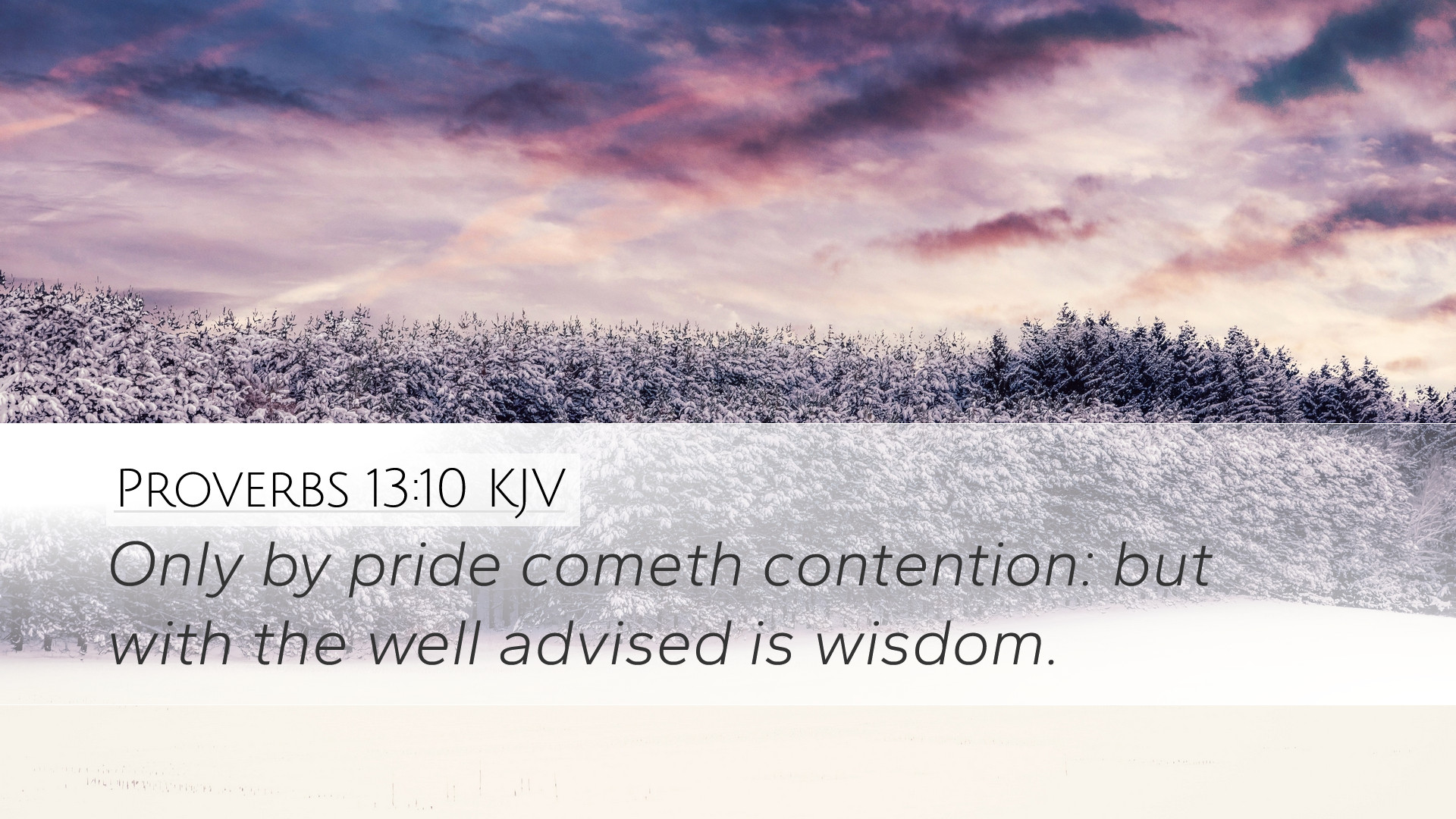Commentary on Proverbs 13:10
Verse Text: "Only by pride cometh contention: but with the well advised is wisdom."
Introduction
The verse from Proverbs 13:10 provides a profound insight into the nature of conflicts and the importance of humility in the pursuit of wisdom. This commentary draws from various public domain sources to elicit deeper understanding for pastors, students, theologians, and scholars.
Exegesis of the Verse
Solomon begins with the declaration that pride is the root of contention. This statement not only reveals the destructive nature of pride but also serves as a foundational principle in understanding human relations.
Analysis of Key Terms
- Pride: Refers to an inflated sense of one's own importance or superiority, which often leads to discord and strife.
- Contention: Implies conflict, strife, or quarrels arising from disagreements, often exacerbated by prideful attitudes.
- Wisdom: Represents sound judgment and discernment that comes from a humble heart willing to be advised and corrected.
The Nature of Pride
As noted by Matthew Henry, pride is an insidious force that breeds contention in both personal and communal relationships. It establishes barriers to effective communication, fostering an environment where misunderstanding and debate flourish. Henry emphasizes that individuals consumed with pride are often heedless to constructive counsel, entrenching themselves in their positions.
Contention and Its Consequences
Albert Barnes expounds on the social ramifications of contention, suggesting that it leads to broken relationships, divisions within communities, and a deterioration of trust among individuals. Contention results from a refusal to acknowledge others' perspectives, stemming from a prideful disposition that prioritizes self over collective harmony.
The Way of the Wise
In contrast to the proud, those who are described as "well advised" exemplify wisdom rooted in humility. Clarke notes that wisdom is characterized by patience, openness to counsel, and a willingness to engage in dialogues that promote understanding. This comparison serves to highlight the virtues of collaboration and the collective pursuit of knowledge over the individuality that pride favors.
Connecting Humility and Wisdom
Pride closes the mind and encourages a solitary pursuit of truth, while humility opens it, aligning with the teachings of James 3:17, which states that wisdom from above is characterized by purity, peace, gentleness, and a willingness to yield. The humble person approaches conflicts not with arrogance but with a readiness to listen and learn.
Practical Applications for Leaders and Believers
- Self-Reflection: Pastors and leaders should regularly examine their hearts for pride. Acknowledging personal limitations can foster an environment of humility.
- Encouragement of Dialogue: Foster open discussions that allow for diverse viewpoints to be shared without fear of prideful backlash.
- Promoting Peace: Encourage reconciliation efforts among congregants and within the community, emphasizing the importance of humility in resolving disputes.
Conclusion
Proverbs 13:10 serves as a timeless reminder of the pitfalls of pride and the value of humility. As we reflect on its insights, may we strive to embody the wisdom that leads to peaceful relationships and enriches our understanding of one another. In a world fraught with contention, the call to humility and wise counsel remains profound, serving both individual believers and the Church as a whole.


